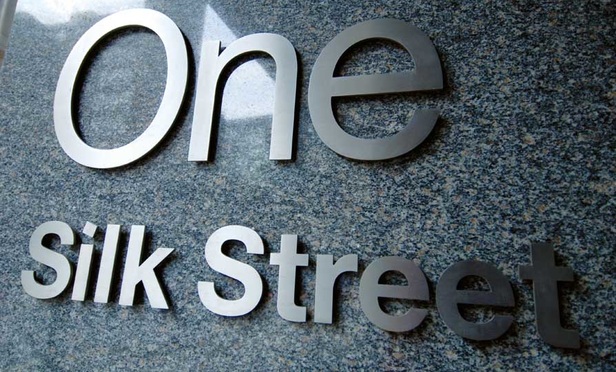Linklaters partners vote in favour of lockstep reform
Linklaters vote comes as CC reviews partners' positions on firm's new lockstep
November 03, 2016 at 09:08 AM
3 minute read
Linklaters partners voted to approve a package of reforms to the firm's lockstep system at its partner conference in London earlier today (3 October).
Partners voted to introduce a range of measures intended to increase the flexibility of the firm's lockstep, without going as far as introducing 'superpoints' to reward star performers.
Linklaters' current lockstep runs from 10 to 25 points over 10-12 years. Under the proposals this ladder will be doubled to range from 20 to 50 points.
The entry point to the equity will continue to depend on which country a partner is based in, with weightings based around cost of living and strength of the local legal market.
The lockstep will continue to be capped at different points depending on the jurisdiction but the new proposals give exceptional partners the chance to continue climbing the lockstep beyond the local cap. Decisions will be made on an office-by-office basis.
The reform also includes the introduction of a gate in the equity after eight years, which will apply across all regions. This will mean that all partners will be subject to a review of their performance at this point, before being allowed to continue progressing.
The eight-year gate will also allow management to look at the individual's performance in the context of a wider group of partners in the same practice or geography.
According to partners inside the firm, the aim of this is to instill the idea of a regular review of partner performance, carried out in a transparent way.
In addition, partners who have reached the top of the equity will have their performance reviewed after five years with the intention of preventing the lockstep becoming too top heavy.
Under the previous managing partner Simon Davies, several controversial restructurings of the firm's lockstep damaged the relationship between management and the partnership. The new system would aim to normalise reviews of partner performance in a bid to avoid damaging wholesale restructurings.
According to partners, there are no plans to emulate magic circle rivals such as Freshfields Bruckhaus Deringer and Clifford Chance (CC) by introducing reforms that make it possible to better reward high performing partners with above-lockstep deals.
The Linklaters vote comes as CC is in the process of reviewing some partners' positions on its new lockstep. It is understood that those sitting near gateways are being reviewed, with the process to conclude at the end of the year.
One partner at the firm said: "Every year a group of people are reviewed, but it's not like other firms where everyone is reviewed everywhere each year. The process is largely around gateway arrangements. It's going to be a relatively low percentage that is impacted. This year, there will be fewer changes than last year."
The firm's lockstep structure runs from 40 to a plateau of 100, with the option to extend this to super point levels of 115 or 130. However, in practice the firm had never gone above the top of the main lockstep, or reduced partners' points until last year, when partners voted to overhaul the structure.
The overhaul made it easier to shift partners down the lockstep or promote them to the super point tier without the approval of the majority of partners.
Linklaters declined to comment.
This content has been archived. It is available through our partners, LexisNexis® and Bloomberg Law.
To view this content, please continue to their sites.
Not a Lexis Subscriber?
Subscribe Now
Not a Bloomberg Law Subscriber?
Subscribe Now
NOT FOR REPRINT
© 2025 ALM Global, LLC, All Rights Reserved. Request academic re-use from www.copyright.com. All other uses, submit a request to [email protected]. For more information visit Asset & Logo Licensing.
You Might Like
View All
'Headaches,' Opportunities Ahead for Corporate and Trade Lawyers Advising Foreign Businesses
4 minute read
DLA Piper Appoints New Co-Managing Partners for Peru Office

CMS Sheds 15 Real Estate Lawyers Following Second Redundancy Round in 18 Months
2 minute read
Former Dentons, Baker McKenzie Partners Join Hong Kong Boutique Linked to China's Yingke
Trending Stories
- 1Ben Crump Files First Wrongful Death Suit Over Los Angeles Wildfires
- 2DC Bar’s Proposed Anti-Discrimination, Harassment Conduct Rule Sees More Pushback
- 3California's Chief Justice Starts Third Year With Questions About Fires, Trump and AI
- 4Justin Baldoni Sues Blake Lively and Ryan Reynolds for $400M in New Step in 'It Ends With Us' Fight
- 5Top Leadership Changes Coming for NJ Attorney General's Office
Who Got The Work
J. Brugh Lower of Gibbons has entered an appearance for industrial equipment supplier Devco Corporation in a pending trademark infringement lawsuit. The suit, accusing the defendant of selling knock-off Graco products, was filed Dec. 18 in New Jersey District Court by Rivkin Radler on behalf of Graco Inc. and Graco Minnesota. The case, assigned to U.S. District Judge Zahid N. Quraishi, is 3:24-cv-11294, Graco Inc. et al v. Devco Corporation.
Who Got The Work
Rebecca Maller-Stein and Kent A. Yalowitz of Arnold & Porter Kaye Scholer have entered their appearances for Hanaco Venture Capital and its executives, Lior Prosor and David Frankel, in a pending securities lawsuit. The action, filed on Dec. 24 in New York Southern District Court by Zell, Aron & Co. on behalf of Goldeneye Advisors, accuses the defendants of negligently and fraudulently managing the plaintiff's $1 million investment. The case, assigned to U.S. District Judge Vernon S. Broderick, is 1:24-cv-09918, Goldeneye Advisors, LLC v. Hanaco Venture Capital, Ltd. et al.
Who Got The Work
Attorneys from A&O Shearman has stepped in as defense counsel for Toronto-Dominion Bank and other defendants in a pending securities class action. The suit, filed Dec. 11 in New York Southern District Court by Bleichmar Fonti & Auld, accuses the defendants of concealing the bank's 'pervasive' deficiencies in regards to its compliance with the Bank Secrecy Act and the quality of its anti-money laundering controls. The case, assigned to U.S. District Judge Arun Subramanian, is 1:24-cv-09445, Gonzalez v. The Toronto-Dominion Bank et al.
Who Got The Work
Crown Castle International, a Pennsylvania company providing shared communications infrastructure, has turned to Luke D. Wolf of Gordon Rees Scully Mansukhani to fend off a pending breach-of-contract lawsuit. The court action, filed Nov. 25 in Michigan Eastern District Court by Hooper Hathaway PC on behalf of The Town Residences LLC, accuses Crown Castle of failing to transfer approximately $30,000 in utility payments from T-Mobile in breach of a roof-top lease and assignment agreement. The case, assigned to U.S. District Judge Susan K. Declercq, is 2:24-cv-13131, The Town Residences LLC v. T-Mobile US, Inc. et al.
Who Got The Work
Wilfred P. Coronato and Daniel M. Schwartz of McCarter & English have stepped in as defense counsel to Electrolux Home Products Inc. in a pending product liability lawsuit. The court action, filed Nov. 26 in New York Eastern District Court by Poulos Lopiccolo PC and Nagel Rice LLP on behalf of David Stern, alleges that the defendant's refrigerators’ drawers and shelving repeatedly break and fall apart within months after purchase. The case, assigned to U.S. District Judge Joan M. Azrack, is 2:24-cv-08204, Stern v. Electrolux Home Products, Inc.
Featured Firms
Law Offices of Gary Martin Hays & Associates, P.C.
(470) 294-1674
Law Offices of Mark E. Salomone
(857) 444-6468
Smith & Hassler
(713) 739-1250









